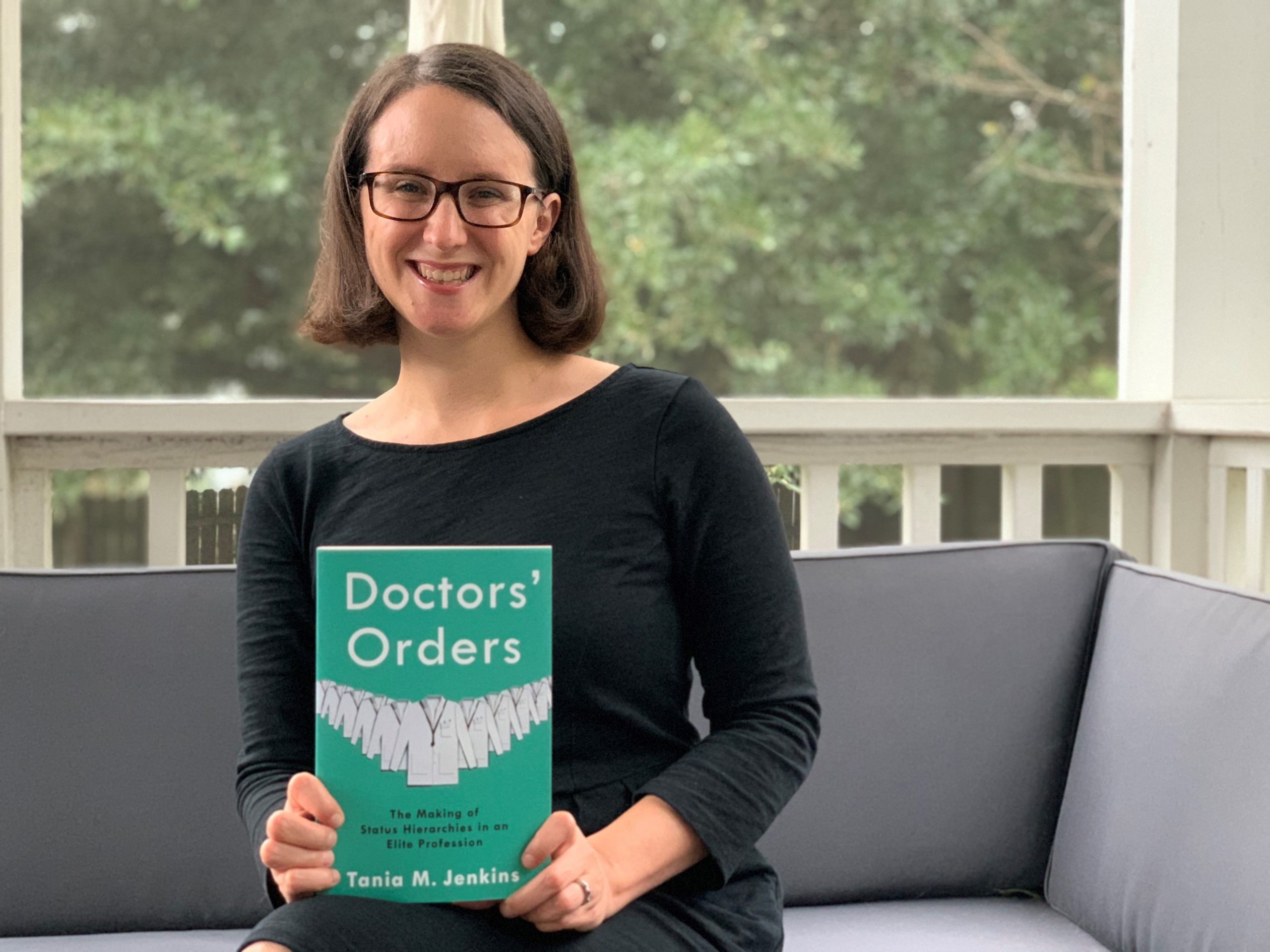
Bookmark This is a feature that highlights new books by College of Arts & Sciences faculty and alumni, published the first week of each month.
 Featured book: Doctors’ Orders: The Making of Status Hierarchies in an Elite Profession (Columbia University Press) by Tania M. Jenkins.
Featured book: Doctors’ Orders: The Making of Status Hierarchies in an Elite Profession (Columbia University Press) by Tania M. Jenkins.
Q: Can you give us a brief synopsis of your book?
A: Doctors’ Orders is about the making of inequality in the medical profession, and about why that inequality matters for both physicians and patients. More specifically, it draws on 23 months of ethnographic fieldwork to examine how status hierarchies form during residency training between American-trained medical doctors, and international and osteopathic physicians. International and osteopathic graduates have to significantly outperform their American MD counterparts to have the same likelihood of getting a residency position. But when they do, they often end up in lower-prestige training programs, while American-trained physicians tend to occupy elite training positions. Doctors’ Orders sheds light on the unspoken mechanisms that contribute to these hierarchies among supposed equals.
Q: How does this fit in with your research interests and passions?
A: As a medical sociologist, I have spent the last 15 years studying medical professionals and healthcare systems, so this book fits squarely within my areas of interest and expertise. It also helped me expand that expertise by incorporating insights on stratification and status, and by prompting me to use a new method (for me, at least!) — ethnography.
Q: What was the original idea that made you think: “There’s a book here?”
A: This book actually started out as a class project in my first year of graduate school. I initially set out to observe hierarchy in medicine through the practice known colloquially as pimping, a Socratic style of teaching where trainees are put on the spot and asked questions by higher-ups, often with the goal of reinforcing who is in charge. When I could not find any examples of this form of questioning at my first field site, a small community hospital in the Northeastern United States, it prompted me to take a step back and ask, “What might be different about this hospital than other hospitals I’ve read about?” Upon looking at the roster of residents, it dawned on me that almost all the residents were either international or osteopathic medical graduates — not American-trained MDs. By comparison, when I looked at the roster of a larger university hospital nearby, it was the opposite: it almost only staffed American-trained MDs. So a puzzle began to form: why are these programs so segregated along the lines of medical training background? And how does this segregation affect the residents’ education and mobility within the profession? These ended up being the central research questions at the heart of Doctors’ Orders.
Q: What surprised you when researching/writing this book?
A: I think I was most surprised by the openness of my respondents. These were busy medical professionals with lots on their plate, but they let me, an outsider, into their world to better understand an arguably uncomfortable topic — status hierarchies. I will always be appreciative of their time, patience and candor.
Q: Where’s your go-to writing spot, and how do you deal with writer’s block?
A: I normally like to write from my office or a coffee shop — somewhere away from home. These days, however, with the pandemic, I’ve had to get used to working from home and remaining productive! I find writing to be one of the most difficult things I do as an academic, so to make it easier, I break up the process into three parts: outlining, free writing and then editing. Doing so has made writing feel less daunting since at each stage, I’m focusing on one thing at a time: conceptualizing, articulating those concepts and then polishing.
Jenkins is an assistant professor in the department of sociology, book review editor of the journal, Social Forces, and faculty research fellow at UNC’s Cecil G. Sheps Center for Health Services Research. Doctor’s Orders has been praised with bringing to the forefront findings that “transcend medicine, illuminating how taken-for-granted assumptions about the link between educational prestige and individual merit shape career outcomes among U.S. professionals” (Lauren Rivera).
Listen to a podcast about the book.
Nominate a book we should feature by emailing college-news@unc.edu. Find some great books to add to your reading list by checking out our College books page.
